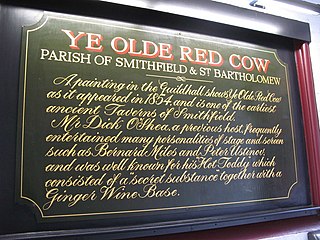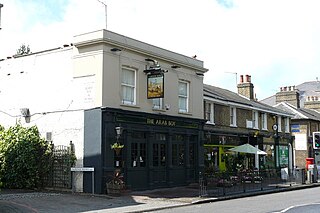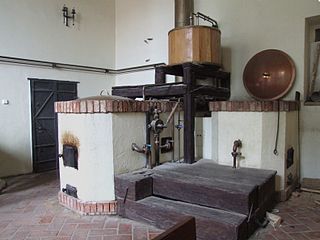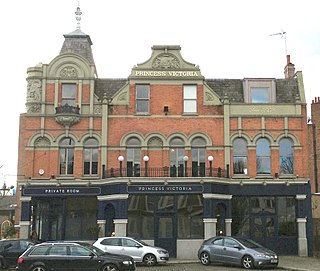 W
WThe following is an incomplete list of notable public houses in the United Kingdom.
 W
WThe Arab Boy is a pub in Putney, London.
 W
WThe Beerhouse Act 1830 was an Act of the Parliament of the United Kingdom, which liberalised the regulations governing the brewing and sale of beer. It was modified by subsequent legislation and finally repealed in 1993. It was one of the Licensing Acts 1828 to 1886.
 W
WCarpenters Arms is a common British pub name.
 W
WThe Duke's Head is a Grade II listed pub in Putney, London.
 W
WA gin palace is an English name originally for a lavish bar selling gin, later transferred by association to late Victorian pubs designed in a similar style.
 W
WThe Green Man is a public house in Putney in the London Borough of Wandsworth, on the edge of Putney Common, parts of which date back to around 1700. The pub was once frequented by highwaymen and was a popular place for participants to fortify themselves before or after a duel on nearby Putney Heath.
 W
WThe Half Moon is a public house and music venue in Putney, London. It is one of the city's longest running live music venues, and has hosted live music every night since 1963.
 W
WThe following list is for Public Houses commonly called "pubs" in the United Kingdom and elsewhere, entitled "Carpenter Arms." Some of these date back to the development of "true English Pubs" created by English alehouses.
 W
WThe National Inventory of Historic Pub Interiors is a register of public houses in the United Kingdom with interiors which have been noted as being of significant historic interest, having remained largely unchanged for at least 30 years, but usually since at least World War II.
 W
WA pub chain is a group of pubs or bars operating under a unified brand image. Pubs within a chain are tied houses and can, generally, only sell products which the chain owner sanctions. Pubs in a chain normally display their chain branding prominently and may also feature shared aspects, such as menus and staff uniforms.
 W
WIn the United Kingdom, a tied house is a public house required to buy at least some of its beer from a particular brewery or pub company. That is in contrast to a free house, which is able to choose the beers it stocks freely.
 W
WThe White Hart was the personal badge of Richard II, who probably derived it from the arms of his mother, Joan "The Fair Maid of Kent", heiress of Edmund of Woodstock. It may also have been a pun on his name, as in "Rich-hart". In the Wilton Diptych, which is the earliest authentic contemporary portrait of an English king, Richard II wears a gold and enamelled white hart jewel, and even the angels surrounding the Virgin Mary all wear white hart badges. In English Folklore, the white hart is associated with Herne the Hunter.